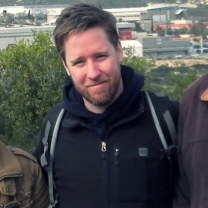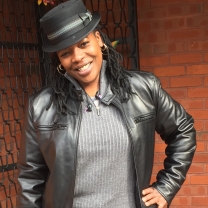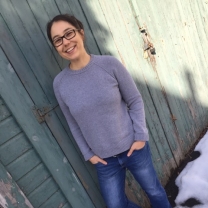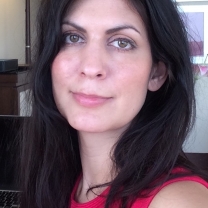 / History Lessons for Jared Kushner
Subscribe
/ History Lessons for Jared Kushner
Subscribe

In an audio recording made of Jared Kushner’s recent remarks to congressional interns and obtained by Wired magazine, President Trump’s son-in-law and go-to man for all things in need of fixing, lamented the state of peace negotiations between the Palestinians and Israelis. “We’ve all read books,” Kushner claimed in regards to the Middle East’s most enduring diplomatic quandary, “we don’t need history lessons.”
As a historian of the conflict I can muster some sympathy for what may be the general thrust of Kushner’s sentiments: namely that the conflict is so laden with past grievance that it can be difficult to envision a future resolution. But if steps towards reconciliation can be made in South Africa, Rwanda, and the former Yugoslavia, surely similar progress could be made in Jerusalem?
Admittedly, this is a generous reading of Kushner’s statements. The more I dwell on them the less I think he is commenting on the complexity of the issue, and is instead channeling his father-in-law’s penchant for a colloquial brand of what business-jargon terms “disruption.” Republican strategists, Silicon Valley pundits, even The Mooch himself have made recent references to the President’s implausible rise in these terms. Trump, the thinking goes, continues to rewrite the traditional rules of American politics. When you’re rewriting rules—or eschewing them altogether—you likely have little use for “history lessons.”
But this, too, may not be what he meant. Maybe after six months, burdened by the twinned weight of a father-in-law’s comical expectations and a public who scorns the benefits of such naked nepotism and mocks his lack of expertise, Jared Kushner is just over this shit.
Now, if I close my eyes, I can envision a younger Jared Kushner, sitting in the front row of one of my classes, looking a little dejected and bewildered following a lecture. I approach him with a sympathetic smile and offer a few of pieces of advice from a historian of the conflict. Maybe a book list if he’d really like to apply himself? This is what it would look like:
Lesson 1: Jared, history isn’t what you think it is.
I generally hate the trite aphorisms ascribed to southern novelists or Iberian poets about the past’s importance to our present. These clichés are particularly irksome because they don’t bother to explain how the past is never the past, or how we are bound, in our ignorance, to repeat our historic mistakes. History is an organic process, full of actions and reactions, change and continuity. You can’t divorce the decisions made decades ago from the present. In this case, Israelis and Palestinians have historically had different starting points in their negotiations. Palestinians began with the position that the entirety of the State of Israel and the Occupied Territories was, prior to May 1948, Palestine, and that the “Green Line” that currently marks the border between Israel proper and the Occupied Territories is a concession on their part. Israelis, on the other hand, begin with that Green Line—a product of the 1967 War—and negotiate for the exchange of territory based on that later geography. In Israel and the Palestinian territories, everywhere you look history is being interpreted, distorted, celebrated and abused. Just this year, Israel has moved to make its State Archives nearly inaccessible to historians wishing to consult its holdings. When the ability for historians to produce research into the past is itself under assault, don’t think that “history lessons” somehow don’t matter.
Lesson 2: Keep reading books Jared, all sorts of books.
When you said “we’ve all read books” I hope you misspoke. You know who says that they’ve “read books”? People who are not currently reading books; people who have foreclosed on the rest of the books they have yet to read. I mean this in the most humanistic way possible. You’ve gone to Harvard and finished professional degrees at NYU, and I won’t pretend that simply because you were born to wealth you aren’t a literate and essentially capable human being. I'll also give you the benefit of the doubt about your motivation when it comes to the numerous tasks your father-in-law has assigned to you. Reading books of all sorts will give you a broad perspective beyond the narrow circles in which you live. I've given you a book list below, related to this particular topic, but don't confine yourself solely to books about the Middle East, opiate addiction, and reforming bureaucracies! You’ve got a lot on your plate but consider the healthy, perspective-expanding opportunity that comes when you know that there is more out there.
Lesson 3: Disruption, without regard to history, is dangerous stuff Jared.
After Anwar Sadat finalized a peace deal with the Israelis in 1979, his efforts were rewarded with a hail of AK-47 rounds. After Yitzhak Rabin announced the Oslo Accords, he was shot twice in the back. This stuff is serious and matters a great deal to the people of the region. In the eyes of people like Sadat’s and Rabin’s assassins, the solutions that their leaders sought were capitulations to a monstrous other. Those assassins lived wholly within a historical narrative against which an American sense of innovative “disruption” will have no effect. This isn’t a matter of maximizing shareholder value, this is life and death, and recognizing the gravity of the task and the impact on people who have to live with the outcome should be a minimum requirement for its arbiter.
Reading list
Here are a few titles on the Israel-Palestine conflict, from across the political spectrum, I thought you might want to peruse at some point:
-
James Gelvin’s The Israel-Palestine Conflict: One Hundred Years of War (Cambridge University Press, 3rd edition, 2014). Starting with a textbook is always a good idea and you can’t go wrong with reading this one, by one of the best historians of the modern Middle East today. Gelvin is also a fantastic writer so this is a great entrée into the topic.
-
Benny Morris’ Birth of the Palestinian Refugee Problem, 1947-1949 (Cambridge University Press, 1989). Morris wrote this in the late 1980s as part of a wave of Israeli historians who used the state archives to produce unflinching historical accounts of the country’s founding. While it remains a controversial book, largely for the author’s conclusions about culpability (or lack thereof) the research is second to none. The Palestinians even carried a copy of the book during the 2000 Camp David negotiations.
-
Catastrophe Remembered: Palestine, Israel, and the Internal Refugees (Zed Books, 2005). This edited volume of essays features both Palestinian and Israeli academics discussing the legacy of the 1948 War and what Palestinians call the Nakba (catastrophe).
-
Derek Penslar’s Israel in History: The Jewish State in Comparative Perspective (Routledge, 2007). I think this collection of essays by one of the world’s preeminent historians of Zionism will give you a lot to contemplate on the nature of the conflict’s history.
-
Shira Robinson’s Citizen Strangers: Palestinians and the Birth of Israel’s Liberal Settler State (Stanford University Press, 2013) is a more challenging academic book about the tensions within Israel since its founding as both a liberal democracy and colonial enterprise.
-
Luke Peterson’s Contending Discourses: Palestine-Israel in the Print News Media (Routledge, 2014) Considering you owned a newspaper for a period, this book may be particularly interesting to you Jared, as it confronts the disparity over reporting on the conflict in the US media. It may ring some bells.
-
Sara Roy’s The Gaza Strip: The Political Economy of De-development (IPS, 2016). A Harvard political economist, Roy’s book is in its third edition and remains an important study of the particularly brutal conditions in the Gaza Strip.
- Ali Abunimah’s One Country: A Bold Proposal to End the Israeli-Palestinian Impasse (Picador, 2007). You want to think about disruption? Here is an impassioned argument for the “one-state solution” – a position that grows stronger with every year of the status quo.
Then again, maybe you’ve already read these books?
Mark Sanagan is a historian of the modern Middle East and the Special Projects Editor at the Dictionary of Canadian Biography. He completed his PhD at McGill University in 2016, and his MA at McGill’s Institute of Islamic Studies in 2006. His dissertation, “Lightening through the clouds: Islam, community, and anti-colonial rebellion in the life and death of ‘Izz al-Din al-Qaaam, 1883–1935,” tells the little-known backstory of a legendary anti-colonial rebel. He has travelled extensively and conducted research throughout the Middle East and Europe. In addition to this research, he has taught undergraduate courses on the Arab-Israeli Conflict and the wider Middle East at McGill and McMaster University, and has delivered a number of talks throughout North American on issues ranging from historical methods, Islamism, and the Oslo Accords.
Photo Credit: donatas1205, "Old books on a wooden shelf," via Shutterstock, 14 August 2017.








